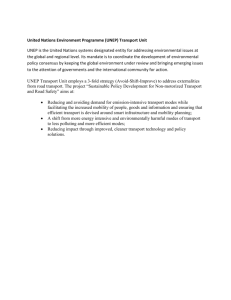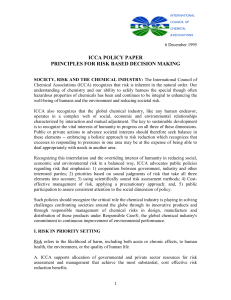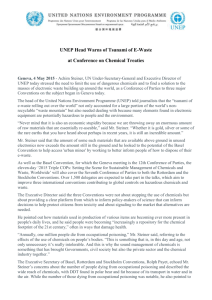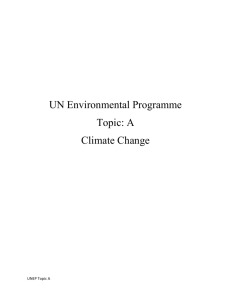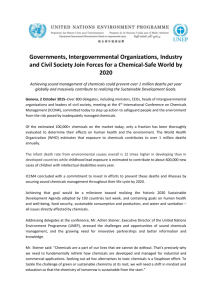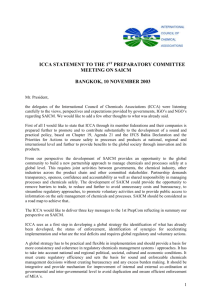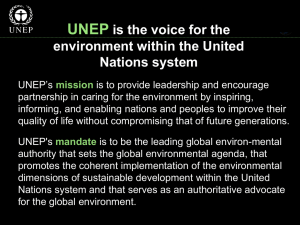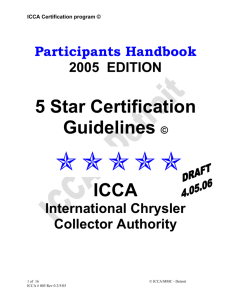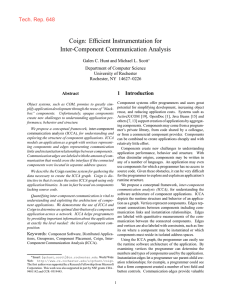INVITATION - International Council of Chemical Associations
advertisement
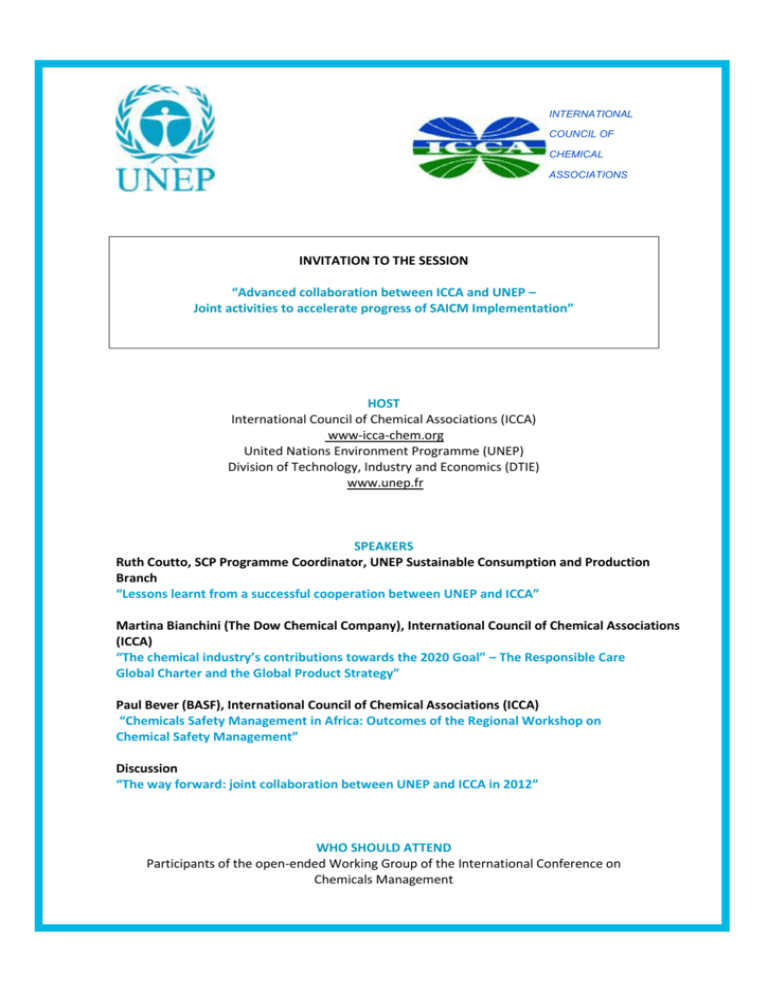
INTERNATIONAL COUNCIL OF CHEMICAL ASSOCIATIONS INVITATION TO THE SESSION “Advanced collaboration between ICCA and UNEP – Joint activities to accelerate progress of SAICM Implementation” HOST International Council of Chemical Associations (ICCA) www-icca-chem.org United Nations Environment Programme (UNEP) Division of Technology, Industry and Economics (DTIE) www.unep.fr U SPEAKERS Ruth Coutto, SCP Programme Coordinator, UNEP Sustainable Consumption and Production Branch “Lessons learnt from a successful cooperation between UNEP and ICCA” Martina Bianchini (The Dow Chemical Company), International Council of Chemical Associations (ICCA) “The chemical industry’s contributions towards the 2020 Goal” – The Responsible Care Global Charter and the Global Product Strategy” Paul Bever (BASF), International Council of Chemical Associations (ICCA) “Chemicals Safety Management in Africa: Outcomes of the Regional Workshop on Chemical Safety Management” Discussion “The way forward: joint collaboration between UNEP and ICCA in 2012” WHO SHOULD ATTEND Participants of the open-ended Working Group of the International Conference on Chemicals Management FORMAT The side event will take place at the 17. November in Hall 1 – Annex B – NGO Room. Lunch bags will be offered from 13:30 on. Introduction and panel discussion with Q&A session will follow at 14:00 – 15:00. PURPOSE The purpose of this session is to present ICCA’s and UNEP’s activities to promote the sound management of chemicals under the framework agreement (Memorandum of Understanding) that has been signed by ICCA and UNEP in September 2010. This framework agreement has been signed to facilitate collaboration to further shared goals and objectives in regard to the development and implementation of effective chemical management regimes by businesses and public institutions. The global chemical industry has a critical contribution to make in enhancing sustainability and sustainable development worldwide through reducing emissions, conserving energy, and developing sustainable materials, technologies and business practice. Chemistry can promote better quality of life and help protect the environment by developing sustainable materials which provide solutions to reducing emissions, conserving energy, providing food, mobility and housing, among others. But on a global economy, globalized product flows mean that potential issues related to product safety are no longer restricted to their country of origin. In addition, global supply chains call for worldwide mainstreaming of safer production practices wherever chemicals are manufactured, transported, repackaged and used. As a response, the chemical industry has expanded and intensified its programs for demonstrating responsible handling and use of chemical substances. At intergovernmental level, UNEP has been active in mainstreaming sound management of chemicals in development policies, and in promoting approaches for safer production and the reducing of chemical accident risks. The Secretary-General’s Report on Chemicals for CSD-19 highlights that significant barriers and challenges to sustainable chemicals management remain. UNEP and ICCA have been actively addressing many of these challenges and have identified policy options on how to overcome them. UNEP aims to encourage decision makers in government, local authorities and industry to develop and implement policies, strategies and practices that are cleaner and safer, and ensure environmentally sound management of chemicals. ICCA’s firm view is that a balanced combination of transparent, science-based and cost effective regulations and industry-led initiatives such as Responsible Care® and the Global Product Strategy is the best way to achieve safe management of chemicals. ABOUT THE ORGANISING PARTNERS The International Council of Chemical Associations (ICCA) represents the majority of chemical manufacturers and producers all over the world. ICCA promotes and co-ordinates Responsible Care®, the Global Product Strategy and other voluntary chemical industry initiatives undertake to improve safe and environmentally sound management of chemicals. The United Nations Environment Programme (UNEP) is the leading organization within the United Nations system in the field of environment with major areas of focus of its global mandate, the conservation, protection, enhancement and support of nature and natural resources, including biological diversity, worldwide.
